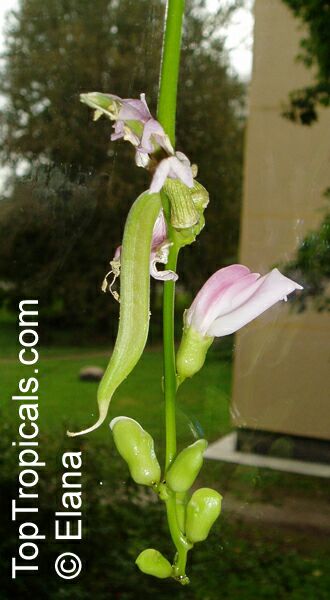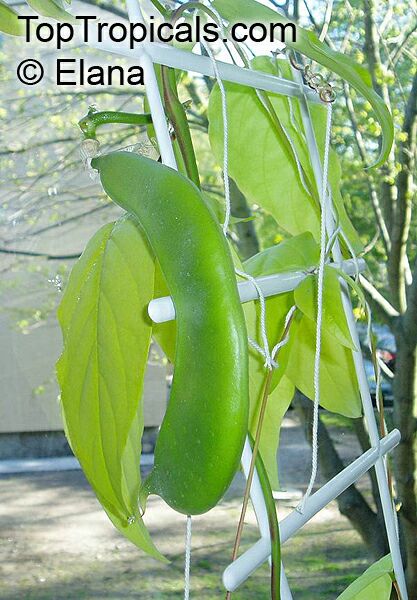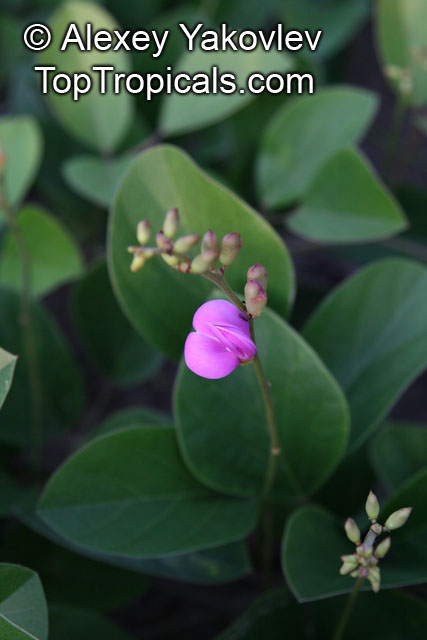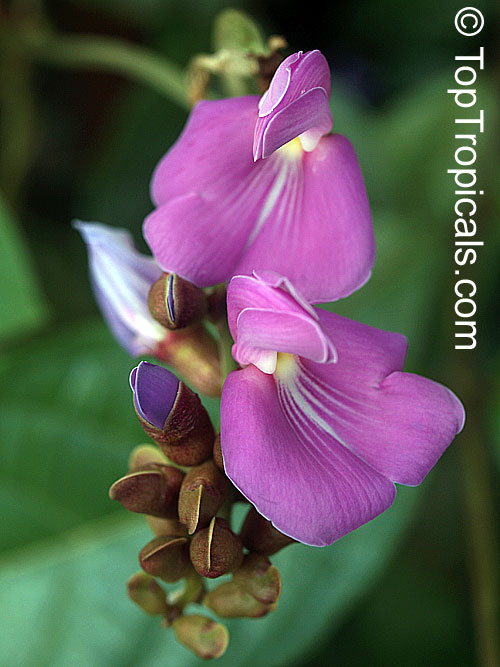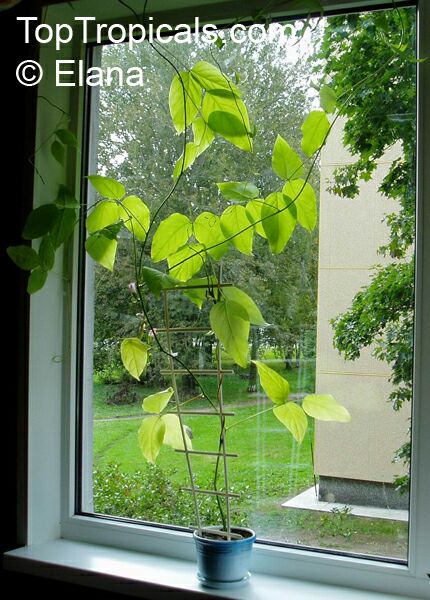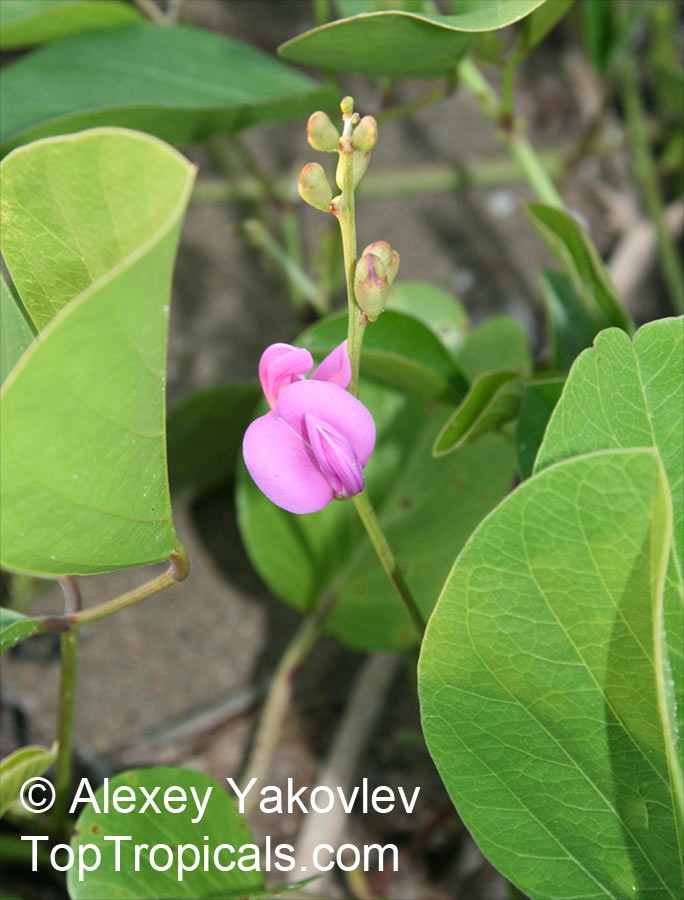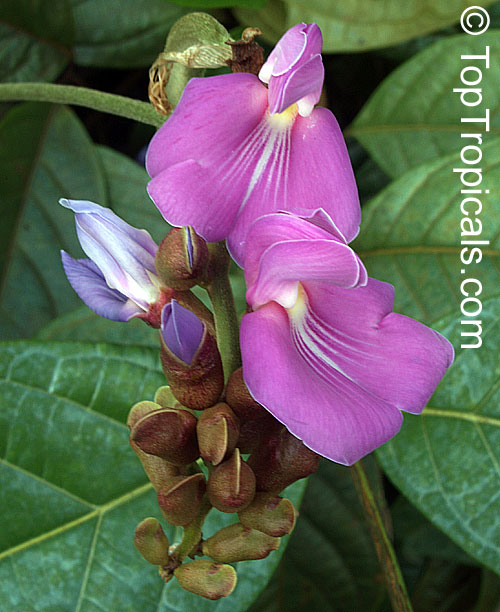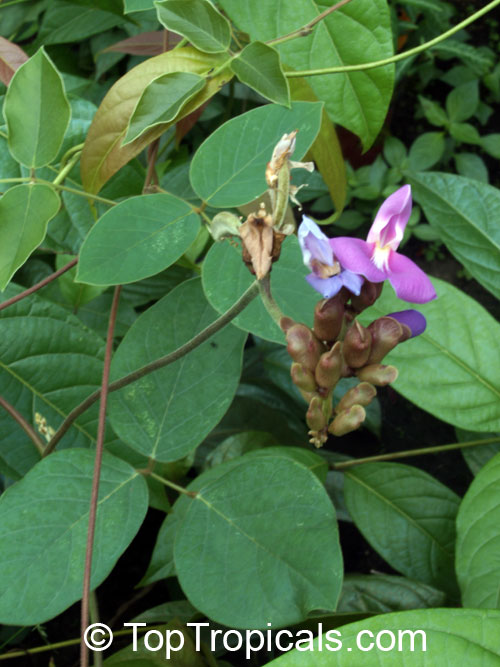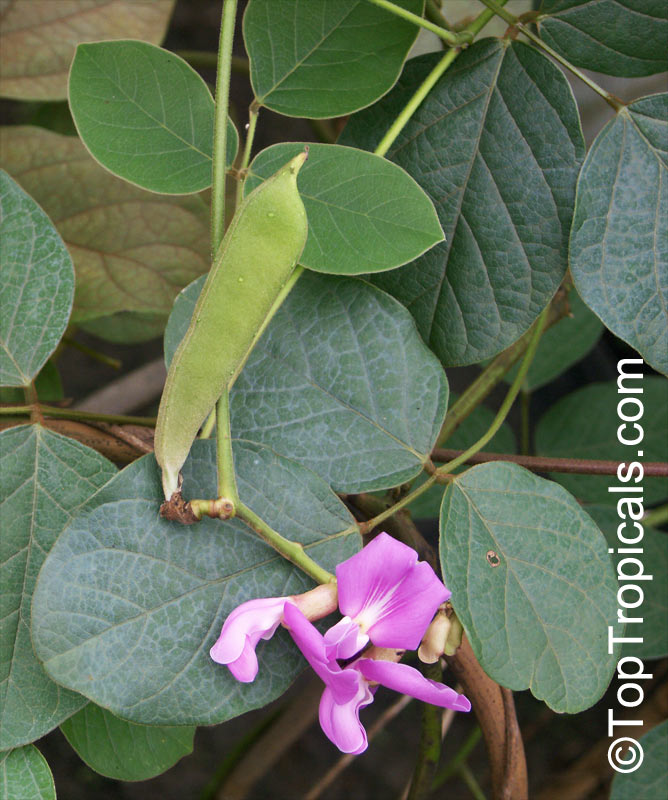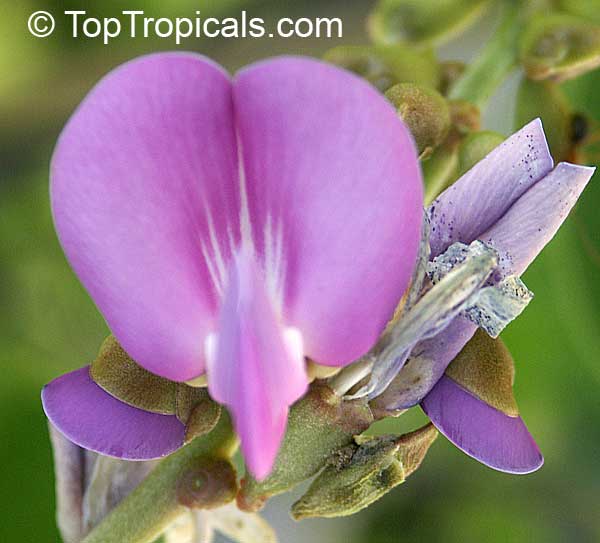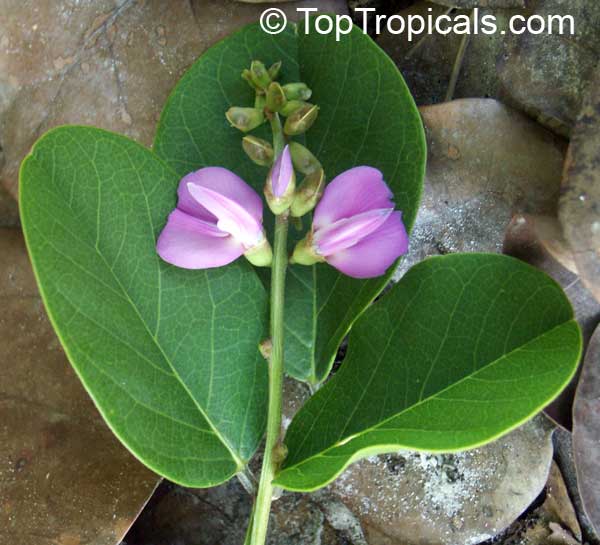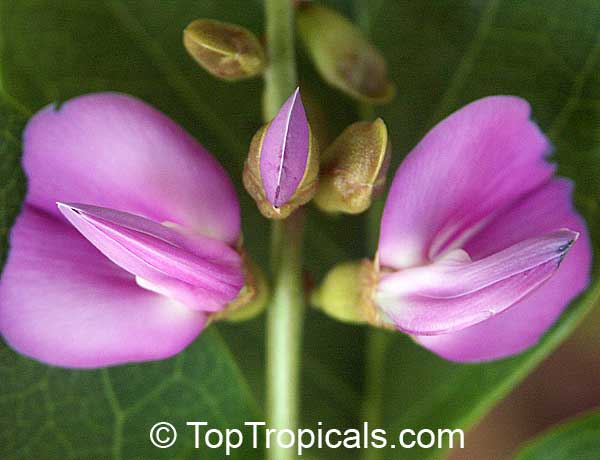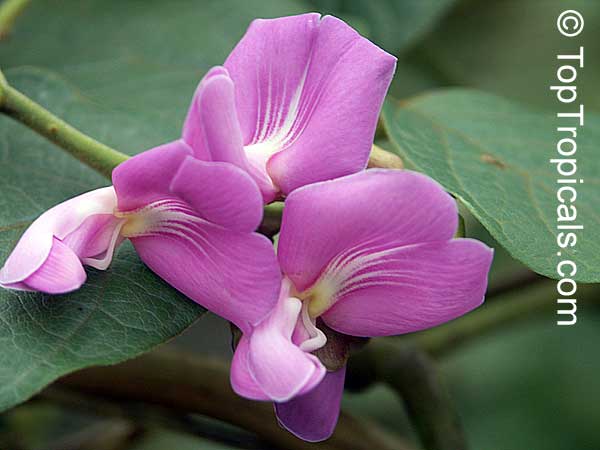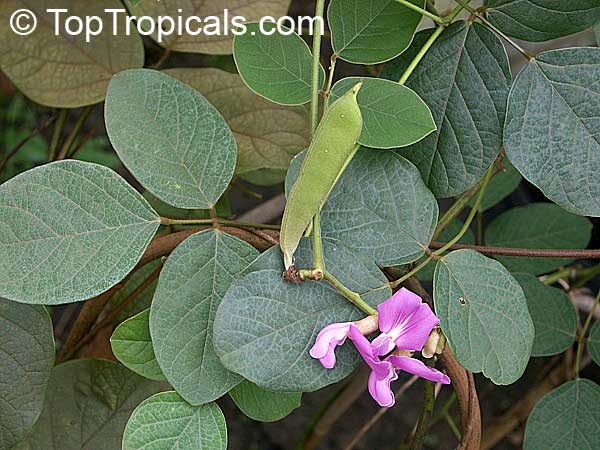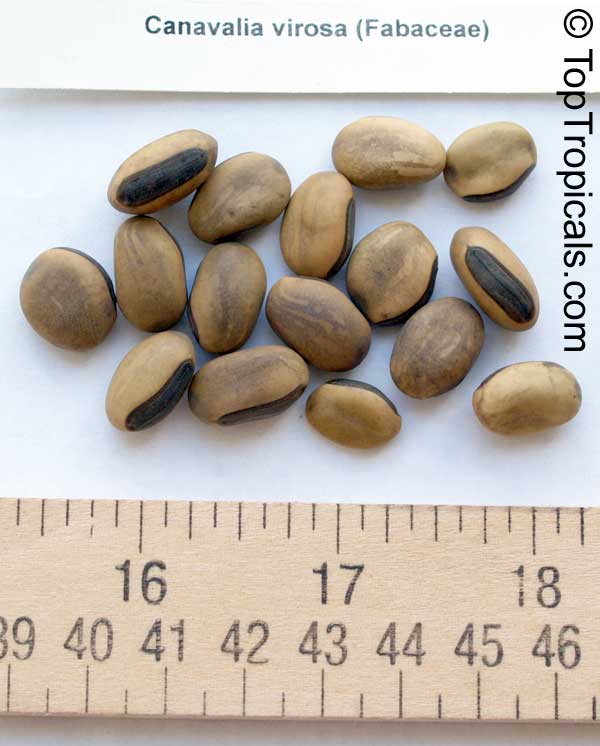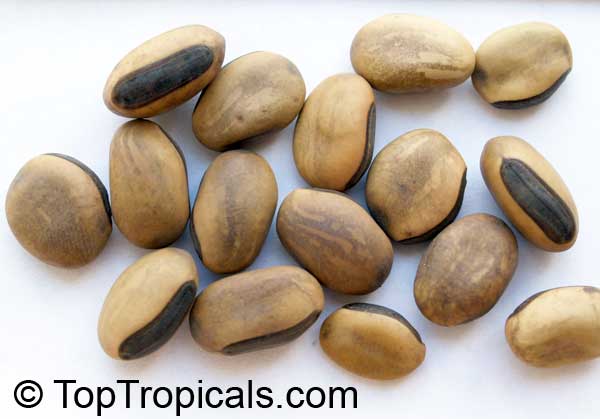Pictogram Guide · Mouse over pictogram for definition
Canavalia sp.
Magic Bean, Kaattuthambattan, Beach Bean, Seaside Bean, JackbeanFamily: Fabaceae
Subfamily: Faboideae
Origin: Africa, India











Canavalia virosa is a fast growing vigorous vine with tri-lobed leaves and pinkish sweetly fragrant flowers. The beans have aphrodisiac and psychedelic qualities. In ancient Africa these beans were used in magic and rituals, they have been found in the prehistoric graves. Seeds of Canavalia virosa, known locally as Kaattuthambattan in the Tamil language, consumed as a staple food by Malayali tribals, in Eastern Ghats of India, and are rich of proteins, amino acids, and minerals.
Related species:
The genus Canavalia includes the tropical high climbing jackbeans. Canavalia gladiata and Canavalia ensiformis seeds - is a novelty gadget 'Magic Message Bean', fast-growing seedling with the message engraved on the cotyledon. Canavalia rosea - Beach Bean is a mostly herbaceous vine that trails along beach dunes and coastal strand. It should be an excellent ground cover for dry sandy areas. The young pods and seeds are edible and used for food in northern Australia. Mature seeds must be boiled or roasted to render them edible. Canavalia gladiata - a twining nearly erect annual. Very similar to Canavalia ensiformis. Not edible. Sometimes grown as an ornamental with very attractive pink/purple papilionaceous flowers. Drought-tolerant; suitable for xeriscaping.
